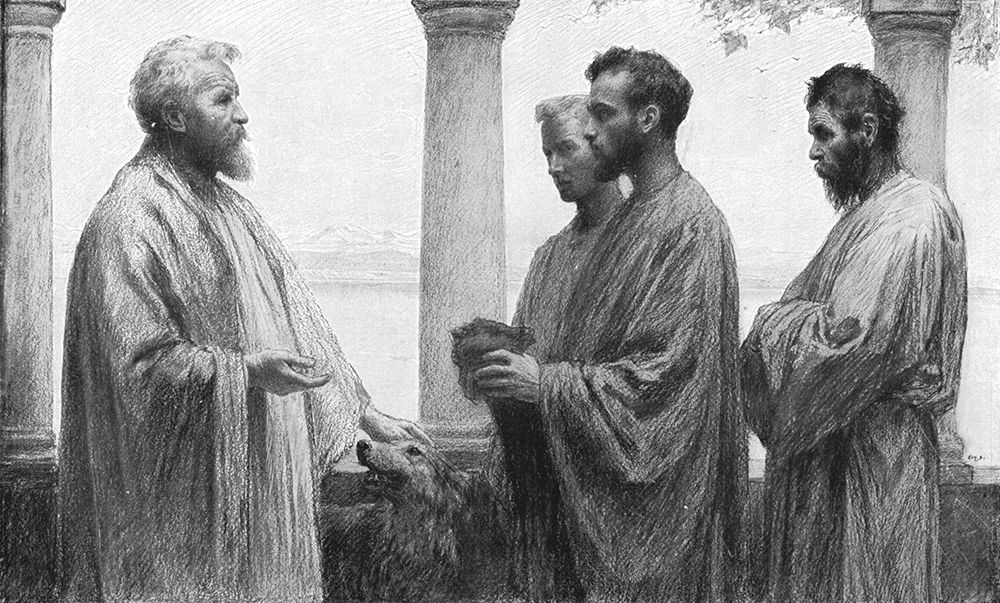The Arameans (also known as Syrians) were a people frequently mentioned in the Bible, especially in the Old Testament. Some key passages that reference them include:
-
2 Samuel 8:6 – “David put garrisons in the Aramean kingdom of Damascus, and the Arameans became subject to him and brought tribute. The Lord gave David victory wherever he went.”
-
1 Kings 20:21
-
2 Kings 5:2
-
Jeremiah 35:11
-
Amos 9:7
These references show the significant and sometimes adversarial relationship between the Arameans and the Israelites.
Geographical and Historical Identity
The Arameans were originally inhabitants of a region known in Hebrew as Aram, which corresponds largely to what we now call Syria. In Swahili, Syria is referred to as “Shamu,” hence the people were called Washami (Arameans).
Their capital was Damascus, which remains the capital of Syria today. While modern-day Syrians are largely Arabs (descendants of Ishmael), they are not the same ethnic group as the biblical Arameans. Over centuries, due to conquests and migrations, the original Aramean identity and culture were assimilated or lost.
A Notable Biblical Event Involving the Arameans
One of the most memorable stories involving the Arameans is found in 2 Kings 6:8–23. The Aramean army was sent to capture the prophet Elisha, but through God’s power, Elisha struck them with blindness and led them into the city of Samaria. Here is the key part of that narrative:
2 Kings 6:15–17 (NIV):
“When the servant of the man of God got up and went out early the next morning, an army with horses and chariots had surrounded the city. ‘Oh no, my lord! What shall we do?’ the servant asked.
‘Don’t be afraid,’ the prophet answered. ‘Those who are with us are more than those who are with them.’
And Elisha prayed, ‘Open his eyes, Lord, so that he may see.’ Then the Lord opened the servant’s eyes, and he looked and saw the hills full of horses and chariots of fire all around Elisha.”
This passage teaches a profound spiritual truth: God’s protection is greater than any threat we may see with human eyes.
Theological Significance
In the Bible, the Arameans often symbolize the enemies of God’s people. While they were real historical nations, they can also represent spiritual opposition in a symbolic or allegorical sense. The frequent battles between Israel and the Arameans remind believers that the Christian life is a spiritual battle, but one in which God is our defender.
Just as Elisha told his servant not to be afraid, the same message applies to us today. When we belong to Christ, God’s angelic army surrounds and protects us. As believers, we are not alone, no matter what the circumstances look like.
Romans 8:31 (NIV):
“If God is for us, who can be against us?”
However, this divine protection applies to those who are under the covering of Christ’s blood—those who have received salvation through faith in Jesus Christ. Without that relationship, we are vulnerable to the enemy.
A Call to Salvation
So the ultimate question is: Have you received Christ as your Lord and Savior?
If not, today is the best day to make that decision. The Bible says:
2 Corinthians 6:2 (NIV):
“I tell you, now is the time of God’s favor, now is the day of salvation.”
Only in Christ do we have lasting protection, peace, and victory over every spiritual enemy.
Conclusion
The Arameans were a real historical people who played a major role in the biblical narrative. Spiritually, they remind us of the reality of opposition, but also of the sovereignty and protection of God. Let us walk daily in the assurance that those who are with us—God’s heavenly hosts—are greater than those who are against us.
If you desire to know more about this salvation or have questions about faith in Christ, feel free to reach out to a trusted believer, local church, or ministry near you.
God bless you.









